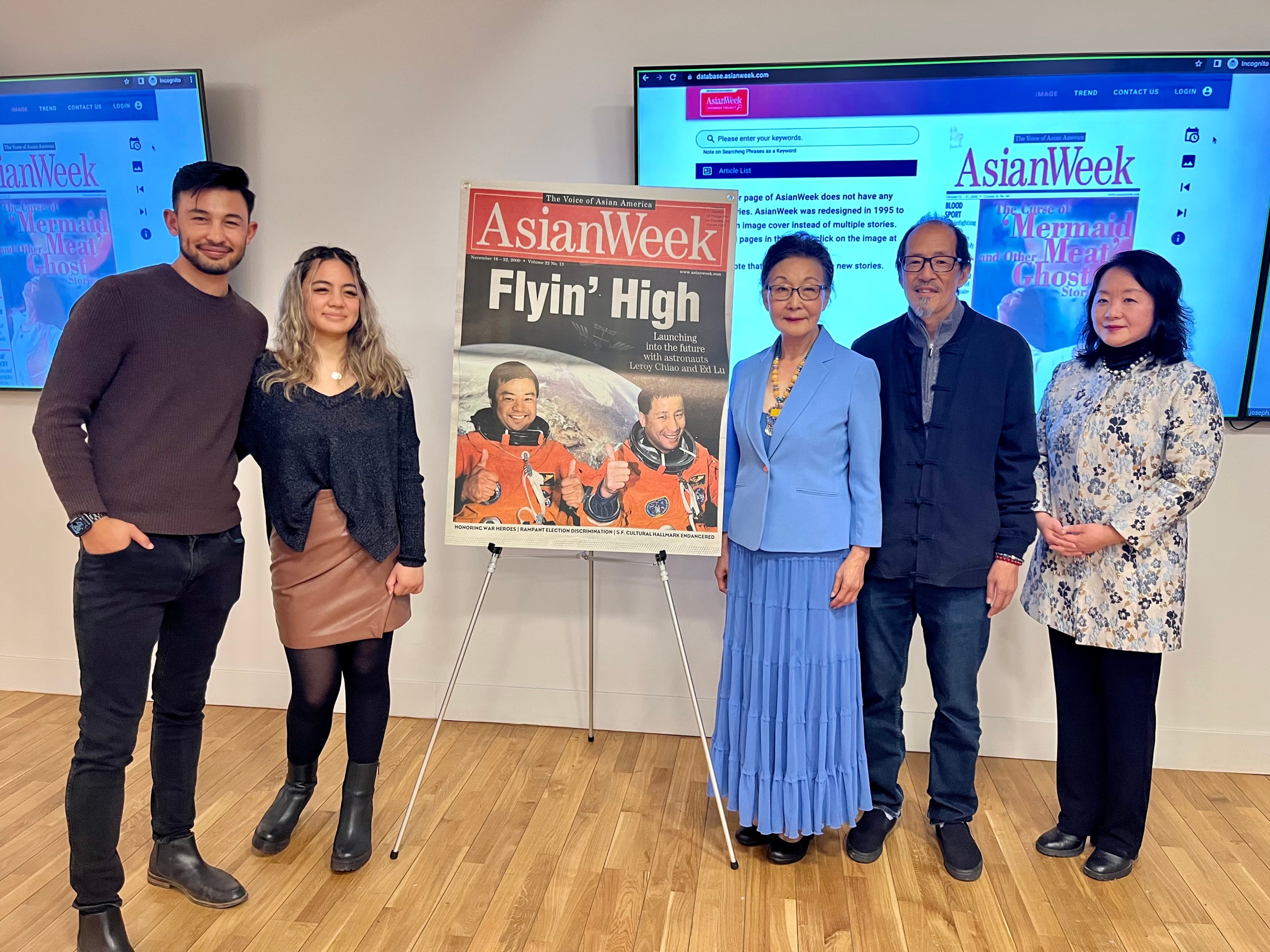More than a decade after it ceased publication, a historic newspaper that focused on Asian Americans has been reborn as a free online source for the community’s history and storytelling.
AsianWeek, a weekly paper founded by John Fang in San Francisco in 1979, was considered the first major English-language outlet reporting on Asian American topics, from national politics to immigration and college admissions issues. After 30 years of operation, the paper’s run ended in 2009, during an economic downturn that saw the closure of established media outlets nationwide.
On Tuesday night, after years working on digitalization, the Fangs—a locally prominent family of politicos who formerly owned the San Francisco Examiner—held an event to launch an online database that includes AsianWeek’s three decades of content, searchable by article keywords, bylines, issue dates and even images.
Many former AsianWeek staff writers and columnists gathered at the launch to share some nostalgic moments.
“This is the historical record,” said Emil Guillermo, a longtime AsianWeek columnist and media personality. Guillermo said the Asian population in the U.S. has increased tremendously since the 1990s and AsianWeek’s coverage can serve as the first draft of the community’s history. “You go back and see, ‘What happened to Asians?’”
San Francisco City Attorney David Chiu, who was a loyal AsianWeek reader, praised the paper for uplifting the community’s voice.
“This publication was one of those beacons from San Francisco that drew me to the city,” he said.
John Fang was the late husband of Florence Fang, a prominent Chinese American leader who owns the famous Flintstone House overlooking Interstate 280 in San Mateo County.
Florence and John Fang’s son Ted led both the AsianWeek newsroom and the database launch. He told The Standard that AsianWeek was the first media organization to unite the various Asian American communities after the 1965 reform legislation ended immigration discrimination. Prior to that, Asian publications had been narrowly focused on ethnicity, with outlets covering Chinese Americans, Japanese Americans and the like.
The family, Ted Fang added, has no plan to restart the paper at this time.
